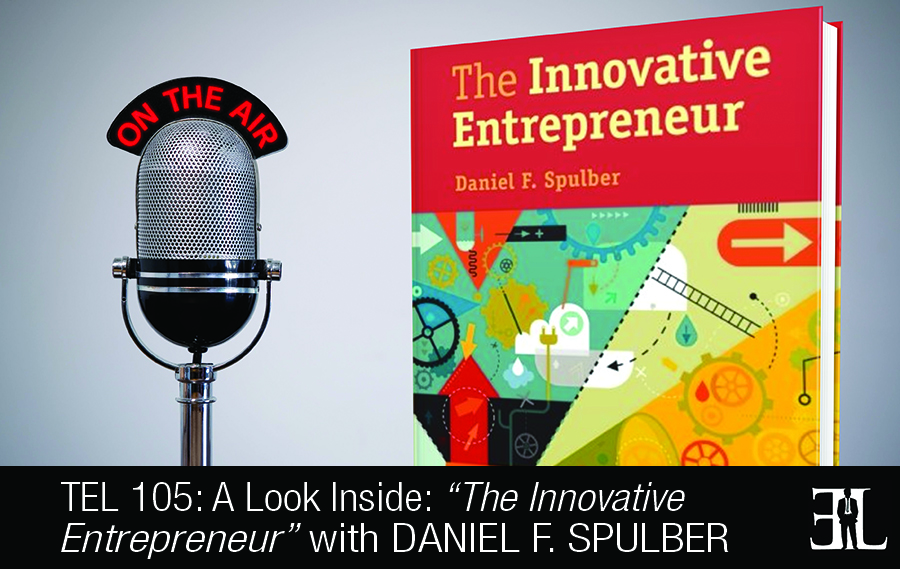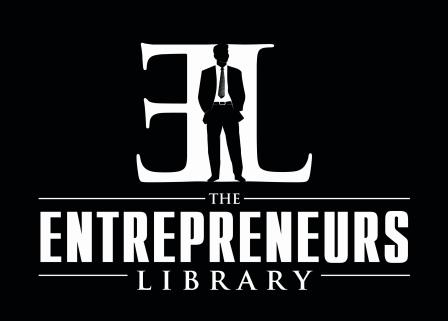A Preview of The Innovative Entrepreneur with Daniel Spulber

A summary of things you should know about The Innovative Entrepreneur according to Daniel Spulber:
Introduction
In this episode Daniel Spulber takes a deep dive into his book, The Innovative Entrepreneur, where he shares the economic framework that addresses the motivation, advantages, pressures, consequences, and contributions of the innovative entrepreneur.
In his book, Spulber unveils an economic theory for innovative entrepreneurship that asks why people with new technologies start their own companies. The goal of the book is identify the costs that other companies incur to readjust their focus, and reveal the problems that arise in the market for new technologies.
This book is perfect for entrepreneurs who have a passion for creating new ideas and want to know the economical effects of creating their own company based on their ideas.
The Book’s Unique Quality (2:19)
A lot of experts who do research on entrepreneurs really don’t think that entrepreneurs are that important. My book tries to show a little bit about why entrepreneurs are so important to our country, what they contribute and all along the way I think it yields some insights that may be helpful to individual entrepreneurs.
The Best Way To Engage (3:40)
You can think of the book as a reference work or you can try and catch some of the highlights.
The Reader’s Takeaway (13:21)
The number one thing that I would like the reader to takeaway is that innovation is a choice.
A Deep Dive Into The Book (4:00)
The book is organized around five major questions. The first big question that a lot of people have asked is what I call the question of entrepreneurial motivation. Why do individuals choose to become innovative entrepreneurs? Entrepreneurs have choices; individuals have other possibilities for their time. They may have a day job or other careers in progress and they have to weigh the returns and rewards or their careers against the returns and rewards of choosing to be an entrepreneur. Entrepreneurs have other choices, they may have some money that they make investments with or pursue an education. They too have to make a decision whether they want to invest that money in the startup venture. Perhaps most importantly if they decide to be entrepreneurs they face another choice of whether to be a replicative entrepreneur or to pursue innovative entrepreneurship. One of the things that I point at as an answer to this important question is that I think individuals tend to make these choices in the context of the life cycle. In other words entrepreneurship is a way to build personal assets for the future while doing what you love to do. One way of understanding the entrepreneurship decision is not as a snapshot but it’s a major decision that falls within your life cycle decisions.
The second question is what I call the question of innovative advantage. And that is why does it seem that entrepreneurs are better at innovating than existing firms? This is important because a lot of people think that the big firm can do all the innovating. One of the many reason why existing firms can’t do it all is because they are faced with all kinds of inertia. It’s not just that managers are short sighted but rather the existing firm has to fund its existing business and it’s very hard to change directions particularly for big companies. The entrepreneurs have an advantage and that advantage is the key to my book. The advantage is that the entrepreneur is not a big organization or a small organization but they are often an individual and as an individual they have got the initiative. The initiative or personal decision can overcome any kind of inertia. Entrepreneurs bring change because they’ve got initiative and they can overcome the inertia that existing firms face.
The third question my book talks about is competitive pressures. Does competition help or hurt innovation? A lot of people are worried that too much competition hurts innovation but entrepreneurs know that they are going to face challenges and I think it’s really important to have competition and competitive pressures.
The fourth question is about creative destruction. Why do we see creative destruction and why not just sell out and avoid the competition? There are a number of reasons for this and one is that I think often is it is very difficult to sell or license your idea to the existing firm. Another idea is that often the person who comes up with the idea has the best way of realizing it. So even though you might cash out, you might do much better doing it yourself.
The fifth and final question is what I call the question of the wealth of nations. How do entrepreneurs affect the economy? This is really important because I think we’ve forgot that. Right now big companies have a grip on regulation and they have a big influence with the government and essentially it’s made it harder and harder for the little guy to get going. Regulations tend to favor big firms and tax rates tend to penalize individual success and so on. Understanding the important contribution that entrepreneurs make to the economy will help motivate entrepreneurs and it will shed a little bit of light on the public policy’s that we need to open the door to startups.
Notable Quotes From The Book (14:15)
“The innovated entrepreneur is the man on the spot.” – Daniel Spulber
The Credibility/Inspiration Of The Author (0:37)
I am a professor at the Kellogg School of Management at Northwestern University here in Evanston Illinois. I have been teaching entrepreneurship and all kinds of topics for a long time so this is a topic near and dear to my heart.
Entrepreneurs are so important because they provide the creativity, the drive and the initiative that drives our economy forward. I wanted to make sure that entrepreneurs themselves had a better understand of the major contributions that they are making to our society. I also wanted public policy makers and experts in the field to have a better understanding of what entrepreneurship is and what it means to our country.
Other Books Recommended By The Author (15:32)
Free to Choose by Milton Friedman
More Information About This Book and The Author
Buy The Innovative Entrepreneur by Daniel Spulber on Amazon today
Visit Kellogg.NorthWestern.edu to learn more about Daniel and his studies
More Information About This Episode
Download the full transcript here (coming soon)
Listen on iTunes, Stitcher , and SoundCloud
Related books: The Innovator’s Method by Nathan Furr | Inside The Box by Drew Boyd | The Maker Movement Manifesto by Mark Hatch
Relevant advice and tips: 5 Steps to Promote Innovation in the Workplace
What did you like and not like about this episode? Fill out this one minute survey here.
 The Entrepreneurs Library
The Entrepreneurs Library














